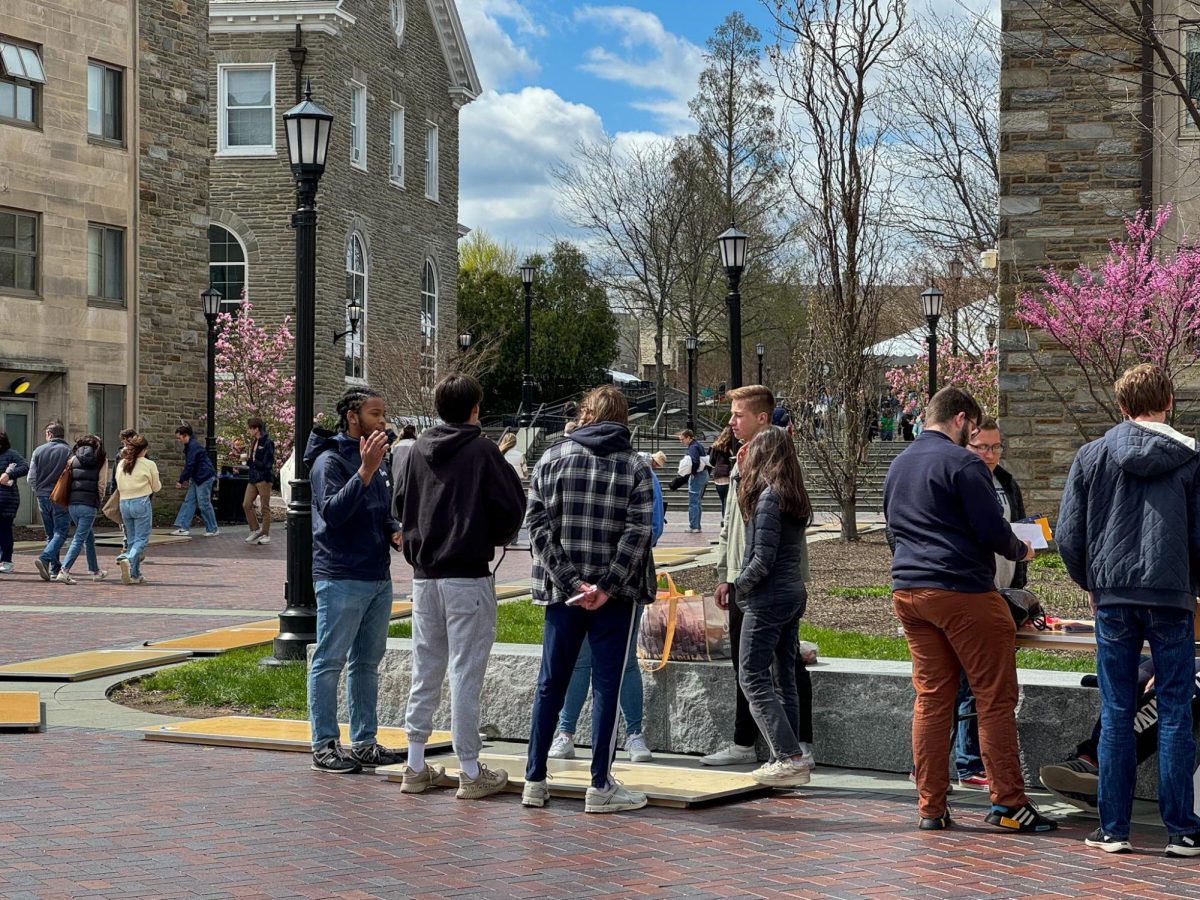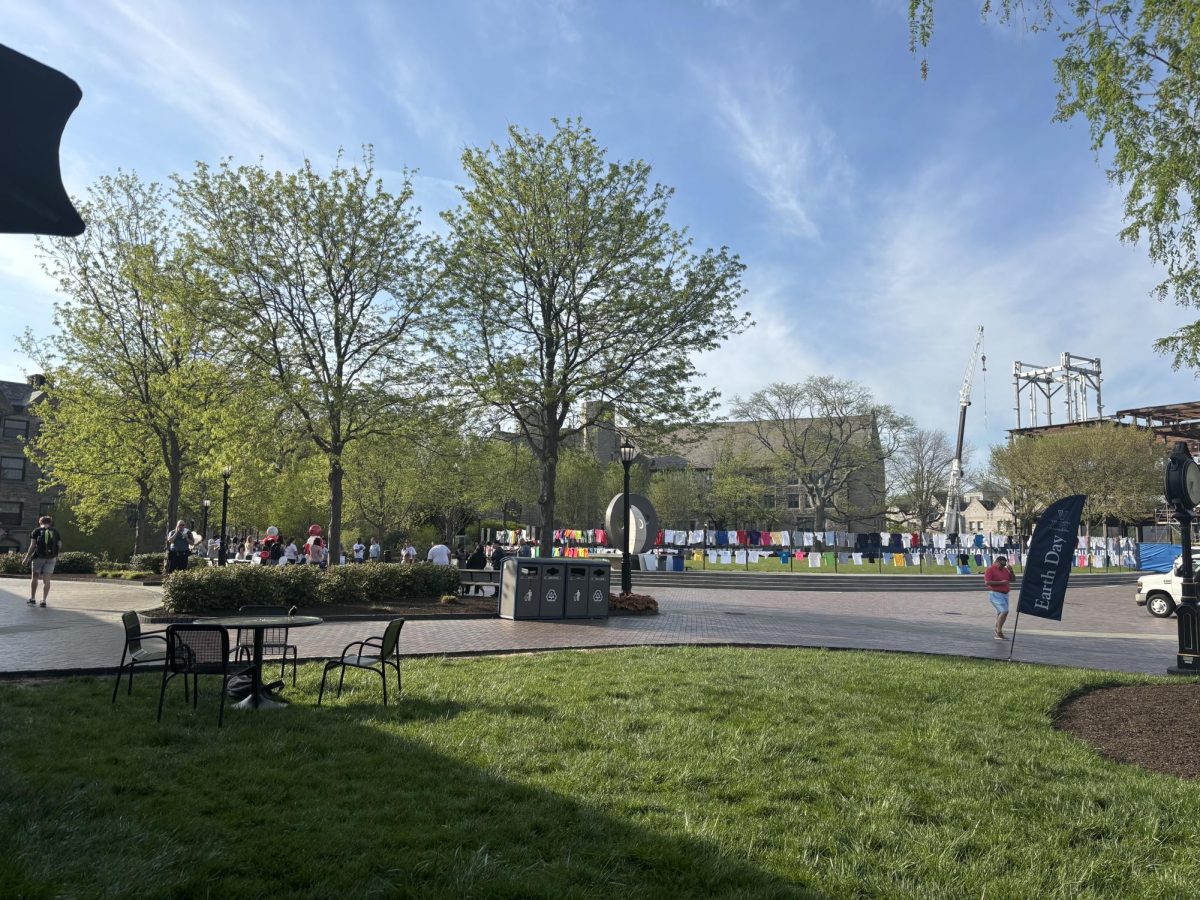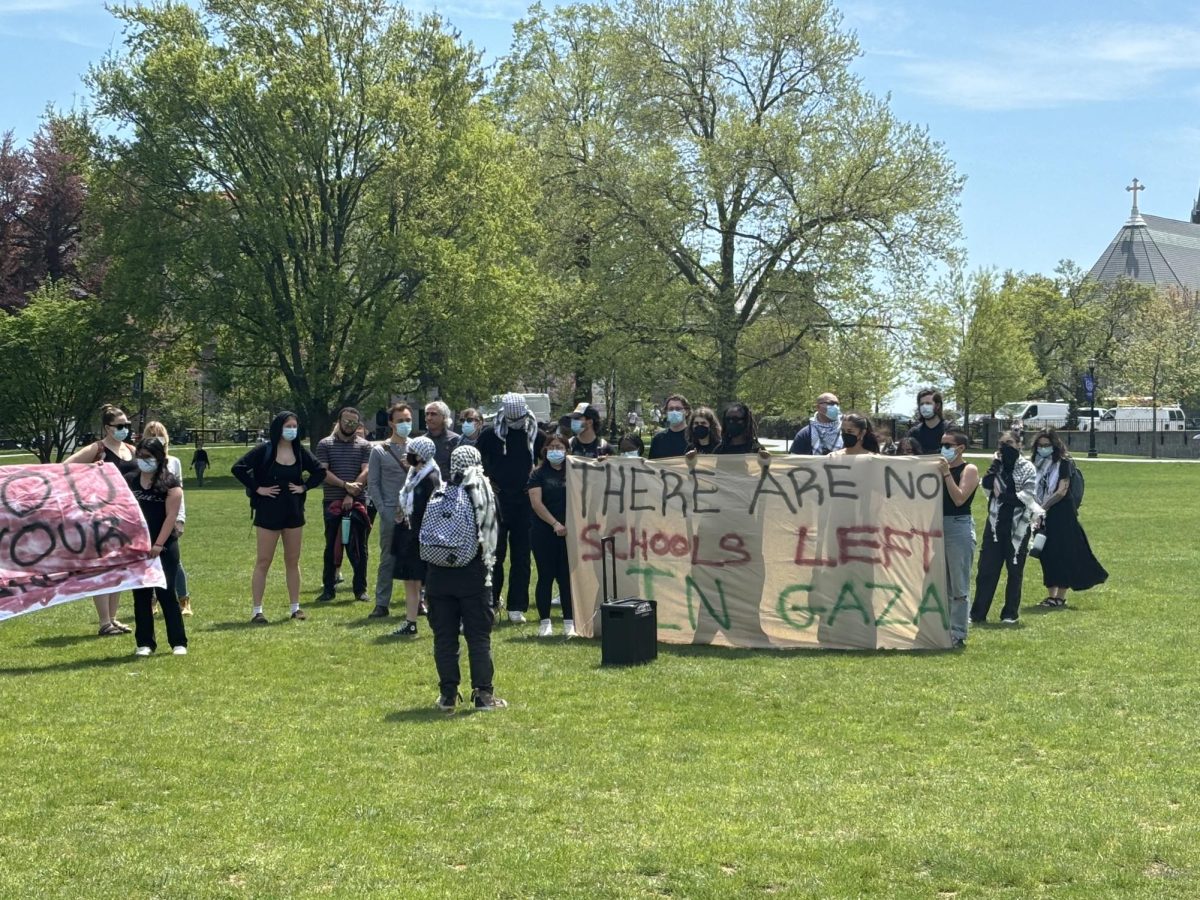On Wednesday, March 22, the Gender and Women’s Studies Department held a thought-provoking conference, offering its audience an impressive array of speakers, performances and snacks to engage with the exploration of gender issues.
The conference began at 9 a.m. and continued throughout the day with events until 5 p.m. This extended period of event opportunities gave students and faculty the ability to appreciate the conference throughout multiple different points of the day.
This week’s conference was held to address the deeply-rooted issues inherent in our contemporary and past society. Overall, the Gender and Women’s Studies Department encourages us to evaluate the frameworks of our system. The unfortunate reality is that gender roles and gender inequality have prevailed throughout time, so it is important for people to evaluate what we can do to confront and recognize these issues.
The beginning of the conference included opening remarks from Dr. Kelly-Anne Diamond, the Programming Director of Gender and Women’s Studies; Dr. Adele Lindenmeyr, the Dean of the College of Liberal Arts and Sciences; and Dr. Terri Boyer, the Director of the McNulty Institute for Women’s Leadership.
Following the introduction, a couple different events involving “Queering Histories” took place in the Bryn Mawr Room. Meanwhile, in the Haverford and Devon Room, other events were performed involving “Intersectionality and the Arts” and “Embodiment Gender and Power.”
Not only were all events educational and interesting, but some of the titles of these speakers were especially eye-catching. Some speakers that occurred during this portion of the conference included “Medieval Feminine Power” by Kevin Inahuazo, “‘I’m her and I’m Me’: Race, Power, and Sexual Violence in Walter Mosley’s Devil in a Blue Dress” by Megan Hayes and “Barbie 101: Greta Gerwig’s Barbie a Feminist Masterpiece or an Introduction to Feminism 101” by Zainab Warda Jeffrey.
“All of the events seemed interesting and related to very relevant topics,” sophomore Katie Hoerle said. “I’m glad they offered a wide range of event options, so that we could attend what we found most engaging.”
Leading up to the luncheon and keynote address were numerous performances under the categories of “Spirituality and Religion,” “Breaking Gender Roles” and “Gender, Statehood, Community.” These topics resonated greatly with audiences, given the relevance and relatability of these issues.
At 12 p.m., a keynote address was eloquently given by Dr. Nancy Hirschmann, titled, “The Neoliberal Family and the Traditional Sexual Division of Labor: A Matter of Race, Sex and Class” and “The Sexual Division of Labor Isn’t Just Your Parents’ Problem: A Matter of Race, Sex and Class.”
Hirschmann works as a professor in the Department of Political Science at the University of Pennsylvania. She specializes in gender, sexuality and women’s studies and has published several books regarding different political theories, as well as gender inequalities.
Hirchmann’s address was incredibly powerful and thought-provoking. She highlighted the definition of neoliberalism and how this connects with the reality of gender roles impacting women’s success in the labor force.
“Women who work full-time still do most of the housework and are called ‘selfish’ for pursuing their careers,” Hirschmann said, when speaking in the context of women who leave the labor force to look after children and their family.
The reality is that there are different expectations for men and women in the household, making it severely difficult for women to balance their desires to work while also creating a family. Hirschmann’s address highlighted these issues, while also emphasizing a need for our government and society to support mothers and reduce the division of labor in the United States.
When women opt in and out of the labor force, it is almost impossible for women to ever make back up the time, money and experience over the remainder of her work life. Hirchmann expresses the need for a change in not only laws to help women through the balance of family and work, but also the need for a shift in our attitudes.
“We must encourage equal sharing by men and women of paid and unpaid labor,” Hirschmann said. “Until the sexual division of labor is made equal, it’s going to be really difficult to change.”
The keynote address by Hirschmann expressed how there have been improvements in gender inequality, but nowhere near enough. Women have been fighting for equal pay, equal autonomy and equal expectations for countless years, yet Hirschmann recognizes that there is still much work to be done.
Before the closing reception, a couple performances showcased their talents while also sharing perspectives on gender roles. The titles of some showcases included, “Period Drama,” “Reconciliation,” “No Children” and “Stories in my Mother Tongue.”
This year’s conference was a large success, impressing its audience with the diverse array of events and performances. After attending the conference, people are encouraged to engage further with these reflections and continue discussions for the future.







